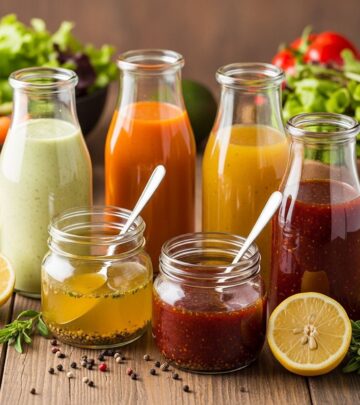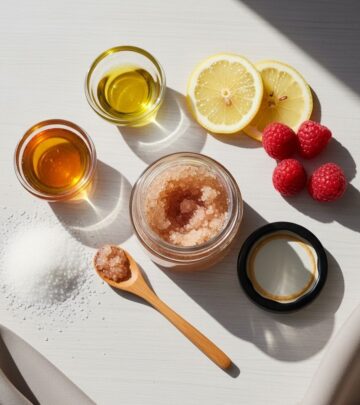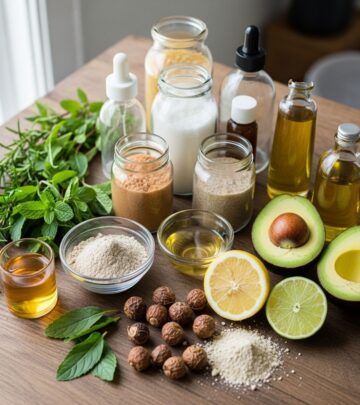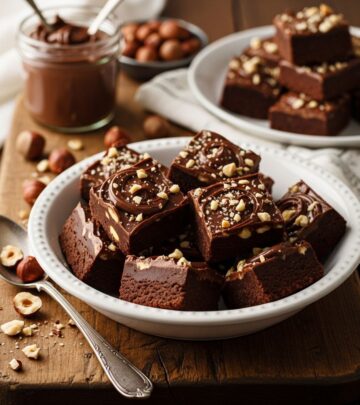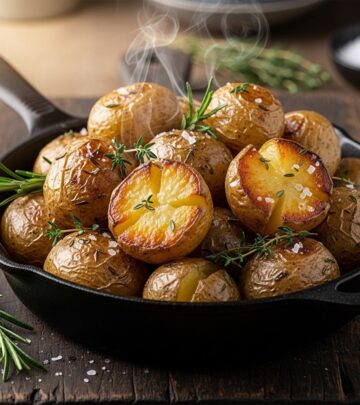How Much Juice Is In One Lemon: 2 Key Measurements
Everything you need to know about juicing lemons, measuring, maximizing, and using every drop in your kitchen.
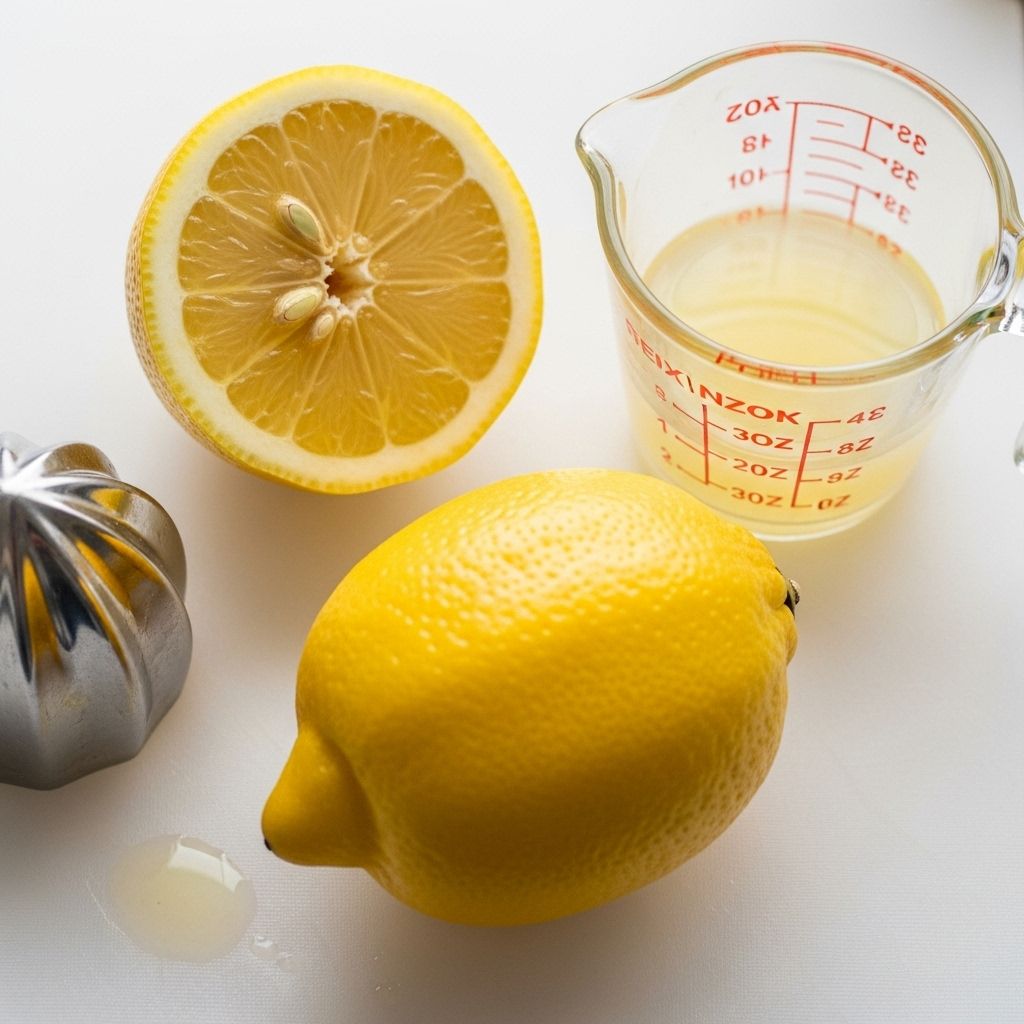
Image: HearthJunction Design Team
How Much Juice Is In One Lemon?
If you’ve ever paused mid-recipe, lemon in hand, wondering, “Exactly how much juice is in one lemon?”, you’re not alone. Lemons vary in size, and recipes rarely specify whether they mean large, small, or medium lemons. Let’s break down the details so you’re never left guessing again!
The Quick Answer
- One medium lemon yields: 2 to 3 tablespoons of juice
- Rule of thumb: Most recipes refer to a medium lemon
- ½ lemon: About 1 tablespoon of juice
Lemons can range in size and juiciness. For most recipes, assume 2 tablespoons of juice per lemon unless another size is specified. If you need just 1 tablespoon of juice, half a lemon will typically suffice. If you need larger quantities, use the equivalency estimates as a guide.
How to Juice a Lemon Efficiently
Before you begin juicing, there are a few tricks to ensure you get the most juice out of every lemon. Here’s how to get the maximum yield with minimal effort:
Prepping Lemons for Juicing
- Roll the lemon: Place the lemon on a cutting board or countertop, and roll it firmly with your palm for a few seconds. This helps break down membranes inside and releases extra juice.
- Warm the lemon: Let the lemon sit out to reach room temperature or soak it in warm water for 1-2 minutes. Warm lemons release juice much more easily.
- Cut crosswise: Slice the lemon in half across its equator (not from end to end), exposing the most juice pockets.
Methods for Juicing Lemons
- By Hand: Hold a lemon half over a bowl and squeeze, using your other hand or a fork to press out juice and dislodge seeds.
- Juice Press: Place the lemon half cut-side up in a handheld juice press and squeeze over a bowl until you’ve captured all the juice. These tools are inexpensive and make juicing fast and seed-free.
- Citrus Reamer: Twist the lemon half on a wooden or plastic reamer over a bowl to extract juice.
For all methods, juice the lemon over a mesh strainer if you want to catch seeds and pulp.
Standard Lemon Juice Conversions
| Unit | Equivalent Lemon Juice |
|---|---|
| 1 lemon (medium) | 2–3 tablespoons |
| ½ lemon | 1 tablespoon |
| 1 cup lemon juice | 6 to 8 lemons |
| 1 tablespoon | ½ lemon |
| ½ cup | 3–4 medium lemons |
Note: If your recipe calls for a specific volume (like 1 cup), always measure juice as you go to be precise, especially since lemon size and juiciness can vary.
Tips for Getting the Most Juice from Your Lemons
- Use room-temperature lemons: Cold lemons from the fridge yield less juice. Let them warm up before juicing.
- Microwave briefly: In a rush? Microwave whole lemons for 10–15 seconds to warm them up and maximize juicing.
- Soak in warm water: Place lemons in a bowl of warm water for two minutes before juicing.
- Roll before cutting: Rolling lemons under your palm breaks up pulp and increases yield.
Lemon Varieties and Their Juice Content
All lemons are not created equal. Here’s how different types of lemons affect juice yield and flavor:
- Regular Lemons: The standard supermarket lemon (Eureka or Lisbon) generally contains 2–3 tablespoons of juice.
- Meyer Lemons: These are smaller, thinner-skinned, and a bit sweeter—yielding slightly less juice per fruit but with a milder flavor.
- Large Lemons: Some large lemons can give up to 4 tablespoons of juice, but yield may be less if the lemon is old or dry.
Meyer Lemon vs. Regular Lemon: Juice Comparison
| Type | Average Juice Yield | Flavor Notes |
|---|---|---|
| Regular Lemon | 2–3 tbsp | Classic tart, bright |
| Meyer Lemon | 1.5–2.5 tbsp | Sweeter, floral, mild |
Meyer lemons are perfect in desserts or salad dressings where a softer citrus flavor is desired.
How to Store Lemons and Lemon Juice
Storing Whole Lemons
- Room Temperature: Keep lemons on the counter if you plan to use them within a week.
- Refrigerator: For longer storage, place lemons in the crisper drawer. They’ll stay fresh for two to four weeks.
- Near Ethylene Producers: Ripen greenish lemons faster by placing them near bananas or apples; these fruits release ethylene gas, speeding up ripening.
Storing Lemon Juice
- Fresh Juice: Store freshly squeezed lemon juice in an airtight container in the refrigerator for up to five days.
- Long-term Storage: Freeze lemon juice in ice cube trays, then transfer to a freezer bag for lasting freshness and easy recipe use.
Using Lemon Juice in Recipes
Lemon juice has a place in countless recipes, both sweet and savory. Here are common uses and some handy hacks:
- Lemonade: The gold standard of summer refreshment, typically using 6–8 lemons per pitcher for one cup of juice.
- Baking: Adds brightness to cakes, cookies, and tarts.
- Dressings and Marinades: Lemon juice’s acidity balances oils and flavors in salad dressings and marinades.
- Finishing Touch: A squeeze of lemon can lift and brighten a finished dish, from grilled fish to roasted vegetables.
Lemonade Recipe Example (Homemade)
- Start with 1 cup of fresh lemon juice (about 6–8 lemons)
- Mix with 1.75 cups white sugar and 1 cup water to make a simple syrup
- Combine with 7 cups of ice-cold water and stir well
- Serve over ice, garnish with lemon slices for extra flair
Store homemade lemonade in the refrigerator for up to 7 days. Add ice just before serving to preserve full flavor.
Expert Tips and Hacks for Juicing Lemons
- Use a fork: Stick a fork into a lemon half and twist as you squeeze to break up more juice pockets.
- Zesting first: Always zest lemons before juicing. The peel is easier to grate when the fruit is whole.
- Freeze lemon halves: If you only need juice, freeze the leftover skins for zesting or flavoring stocks and teas.
- Catch every drop: Use a mesh strainer or cheesecloth to filter out seeds and pulp if you need pure juice.
Frequently Asked Questions (FAQs)
How can I tell if a lemon is juicy?
Choose lemons that feel heavy for their size and have a thin, smooth skin. Avoid overly firm or shriveled lemons, as these signal dryness inside.
Can I substitute bottled lemon juice for fresh?
Bottled lemon juice can be used in a pinch, but fresh lemon juice has a brighter, more vibrant flavor. For optimal taste, use fresh whenever possible.
How do I get more juice from a dry lemon?
Microwave the lemon for 10–15 seconds or soak it in warm water to loosen up juice inside before squeezing.
How can I store leftover lemon halves?
Wrap leftover lemon halves in plastic wrap or place them in an airtight container in the fridge. Use within 3–4 days for best flavor and juiciness.
What are some creative ways to use lemon juice and zest?
- Add zest to baked goods, oatmeal, or yogurt for a burst of flavor
- Use lemon juice in salad dressings, marinades, and homemade vinaigrettes
- Squeeze over grilled meats, fish, or vegetables for a fresh finish
- Mix with honey and hot water for a soothing drink
Summary: Get the Most from Every Lemon
Lemons are one of the kitchen’s most versatile and valuable fruits—essential for their juice, zest, and vibrant flavor. Remember that one medium lemon offers about 2–3 tablespoons of juice, but size and juiciness can vary. Use these tips and tricks to maximize your yield and enjoy every drop in recipes from lemonade to savory dishes. With a little knowledge and the right technique, you’ll never let a single lemon go to waste.
References
- https://www.allrecipes.com/article/how-much-juice-is-in-one-lemon/
- https://www.allrecipes.com/recipe/32385/best-lemonade-ever/
- https://www.allrecipes.com/article/what-is-a-meyer-lemon/
- https://www.allrecipes.com/recipe/20487/old-fashioned-lemonade/
- https://www.allrecipes.com/2-minute-lemon-trick-8728532
Read full bio of medha deb

